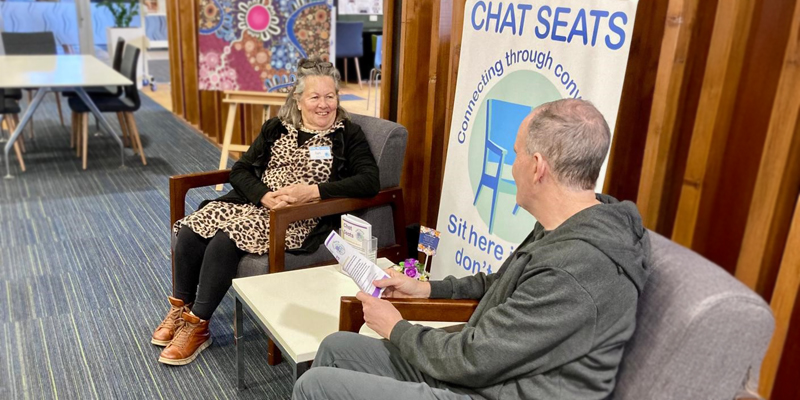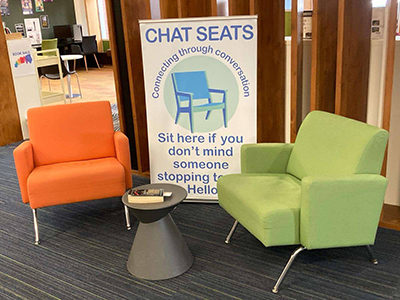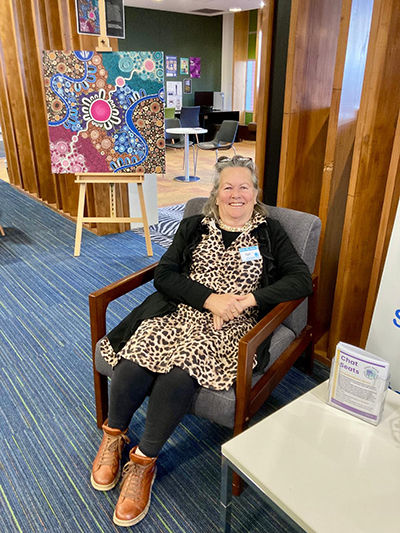UniSA staff create safe spaces for conversation in SA communities
By Melissa Keogh
 COMMUNITY Chat Seat listener June Handley spends time with a listener.
COMMUNITY Chat Seat listener June Handley spends time with a listener.A new initiative that aims to provide a safe and inviting place for people experiencing loneliness to chat with volunteers has been launched across suburban Adelaide by a group of UniSA academics.

The Chat Seats initiative allows members of the community to ‘connect through conversation’ and meet with volunteer ‘listeners’ to share their problems or simply have a chat.
Former UniSA adjunct Professor Tricia Vilkinas from UniSA Business came up with the idea for Chat Seats when she heard of a Chat Seat program in Buderim, Queensland. While it’s not a new concept, with many examples overseas and locally, the initiative is not widespread in communities.
“I have always been interested in chatting with people and have often been thanked for taking the time to stop and spend time with them,” she says. “So, I thought, let’s grow this.”
Two UniSA STEM staff, Dr Doug Kelly and Billy Bizilis, were interested in taking on the project for two students, Darshi Gabani and Chun Ho Cha, who developed a website allowing the volunteers to book appointments, access resources and connect with fellow helpers.
Several sessions have already run since February at Campbelltown in Adelaide’s northeast, allowing people passing the local library to stop and have a chat with a friendly volunteer for up to an hour.
 Chat Seat listener June Handley.
Chat Seat listener June Handley.Professor Vilkinas says seven listeners have been recruited so far to be available and the group was looking for more volunteers to become listeners or coordinators.
Coordinators work behind the scenes to identify venues where Chat Seats can be placed and seek permission from the venue manager or owner. They also recruit listeners and assess their suitability, advising them of necessary clearances like working with children checks.
“The Chat Seats are a win-win situation,” says Professor Vilkinas. “Listeners like listening to others and hearing other people’s stories, and the ‘chatees’ have an opportunity to connect and tell their story. It’s a no-brainer.”
It is anticipated that virtual chat rooms will eventually be made available for FIFO workers, university students and those in regional Australia, all of whom are known to experience loneliness. The virtual Chat Seats will also be available to any other member of the community.
Other Stories
- The breakfast favourite that won’t crack your cholesterol
- Does artificial intelligence help uni students learn smarter or just faster?
- From the Vice Chancellor: 2025 is the year of firsts – and lasts
- Achievements and Announcements
- UniSA staff create safe spaces for conversation in SA communities
- The latest books from UniSA researchers




